They say a picture can say a thousand words.
Sometimes a visual can feel like a punch in the gut.
This is one of those times for many people of color in the United States.
The mounted police division of the Galveston Police Department created such a visual when they decided to transport a suspect through the streets of Galveston, Texas. By necessity, certain forms of policing require waiting in place for physical transport of a suspect: foot patrol, bicycle, motorcycle, mounted....
Why the White officers chose instead to attach a rope and lead a Black man through the streets of Galveston is something even their own department could not answer. But for anyone familiar with the visuals of slave hunters in the antebellum south, the early Ku Klux Klan's deadly night riders or the history of lynching of Black men, women and children, the photos were both stunning and appalling.
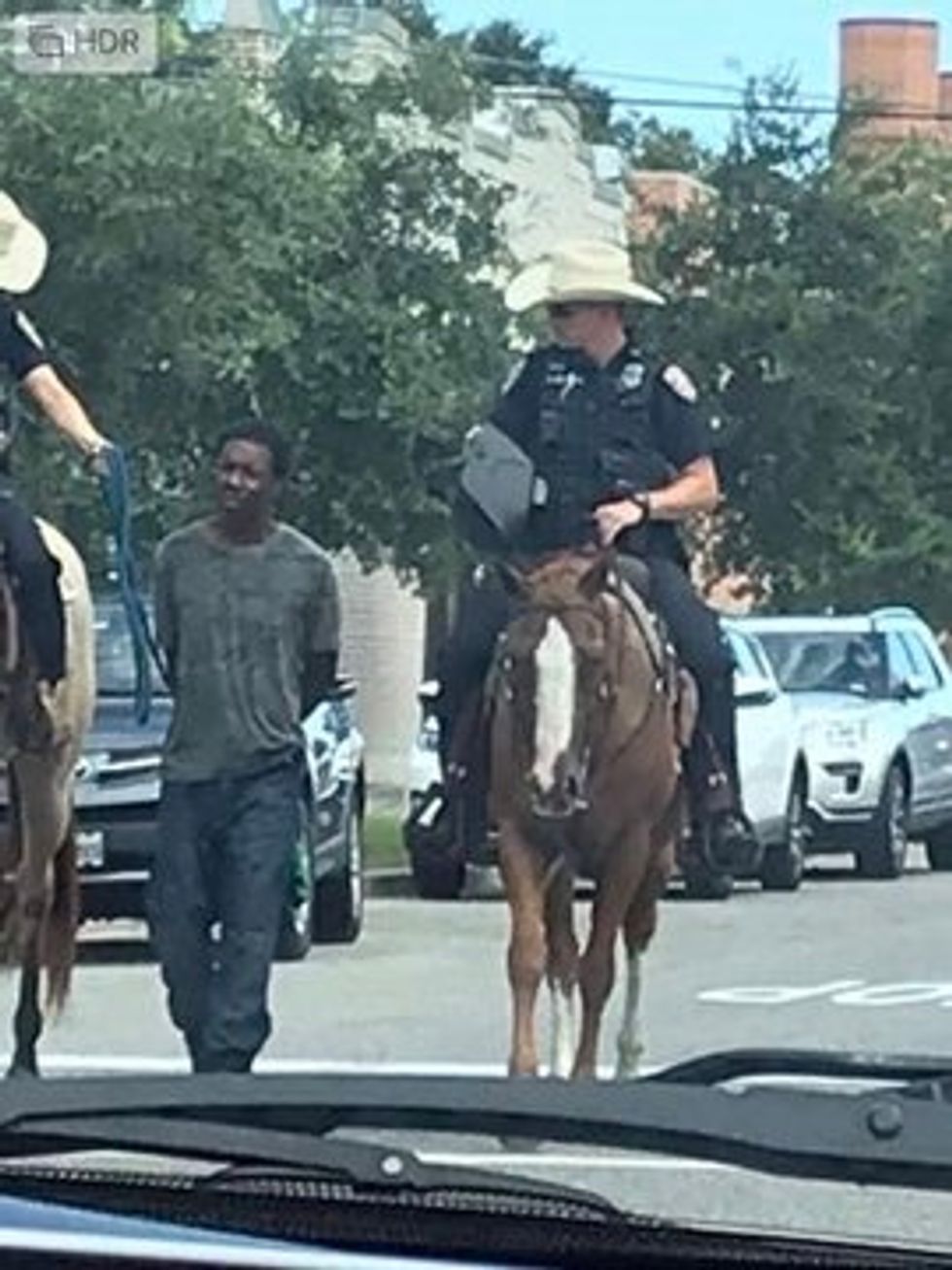
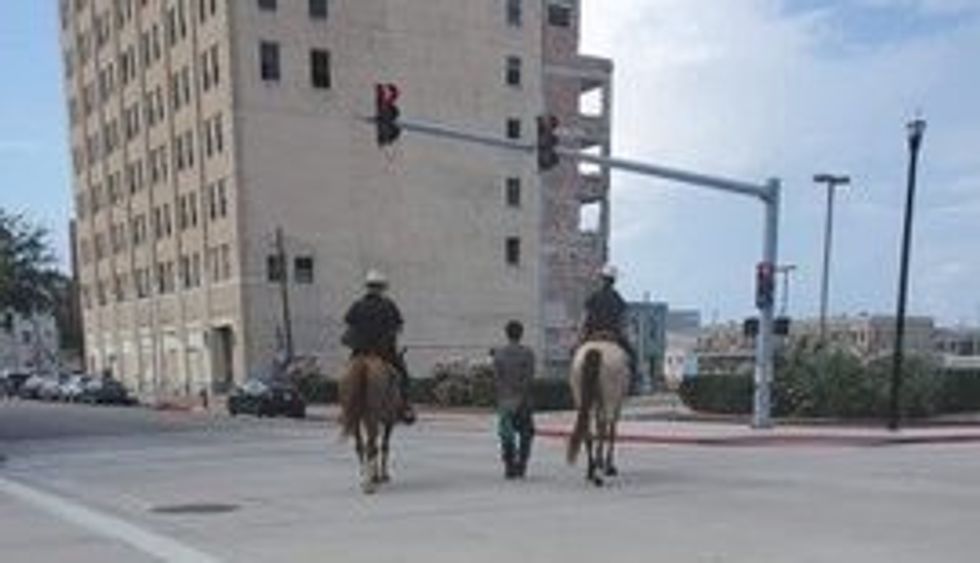
Now the Galveston Police Department Chief, Vernon L. Hale, III, has responded.
In a Facebook post and an official statement, Chief Hale acknowledges that at times removing a suspect from an active scene or from within a crowd may be necessary instead of waiting for transport. But neither scenario applied here.
In the post to Facebook, Hale stated:
"We became aware Monday afternoon of a post circulating about a Saturday arrest involving two mounted patrol officers and how the arrested individual was transported."
"A transportation unit was not immediately available at the time of the arrest and a man was handcuffed and escorted beside two police officers on horses. While this technique of using mounted horses to transport a person during an arrest is considered a best practice in certain scenarios, such as during crowd control, the practice was not the correct use for this instance."
"'Although this is a trained technique and best practice in some scenarios, I believe our officers showed poor judgment in this instance and could have waited for a transport unit at the location of the arrest. My officers did not have any malicious intent at the time of the arrest, but we have immediately changed the policy to prevent the use of this technique and will review all mounted training and procedures for more appropriate methods.' Chief Vernon L. Hale, III"
"We understand the negative perception of this action and believe it is most appropriate to cease the use of this technique. The Police Chief has taken immediate action to suspend this technique of transportation during arrests."
"Please see the press release for more information."
The Galveston Police Department's explanation fell flat with many in the community.




Of course some came to the officer's defense, but were quickly corrected by facts from the police department's own statement.
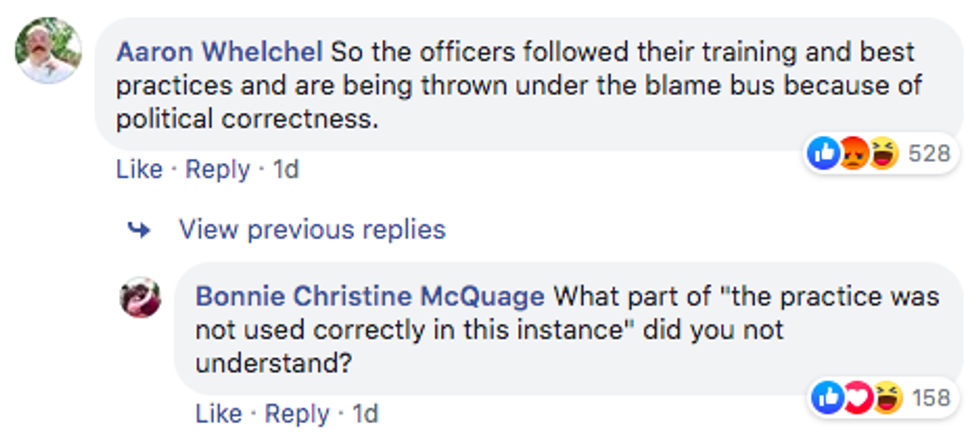





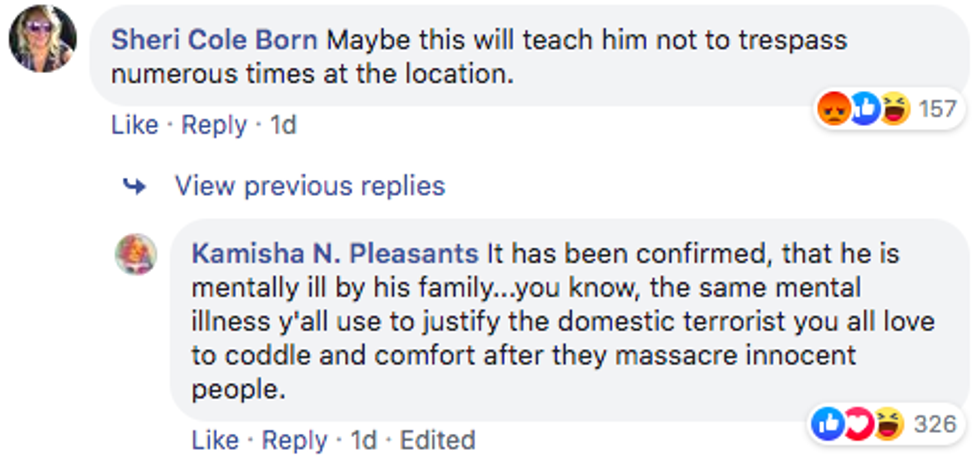

People had trouble believing no cars or other police vehicles—even an ambulance given the heat and the man's known mental illness—to transport the man.
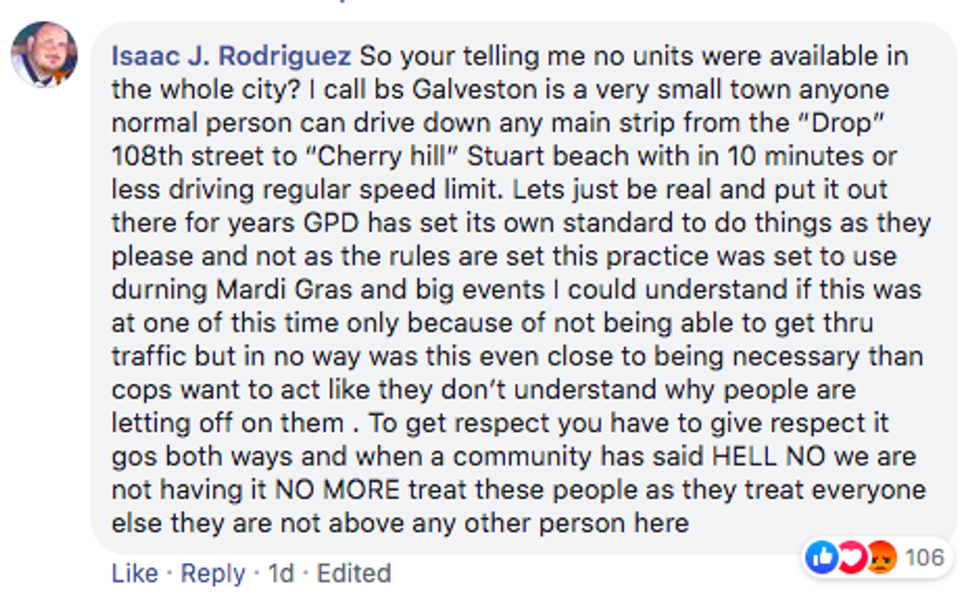

People from across the country and within their own community asked the department to do more.

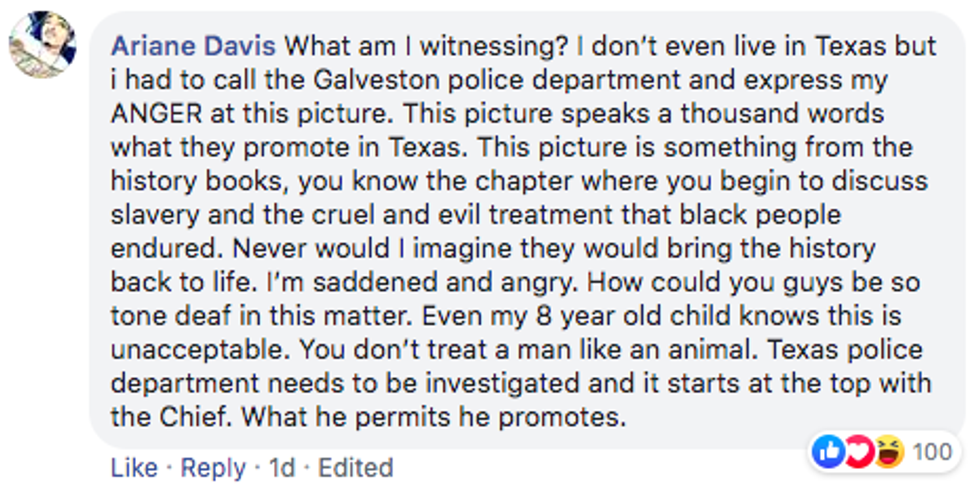

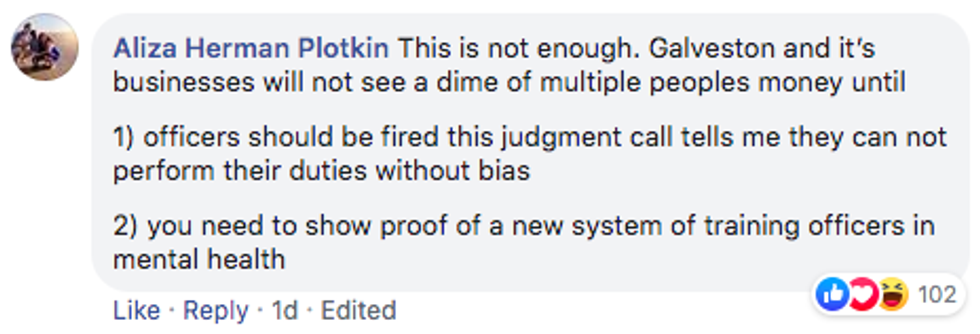
And while this woman appreciated the department acknowledging their error, they felt the explanation was lacking.

If you're unfamiliar with the history of the KKK, slave patrols and lynching in the United states you can learn more with these books:
They Called Themselves the K.K.K.: The Birth of an American Terrorist Group, available here.
Slave Patrols: Law and Violence in Virginia and the Carolinas, available here.
At the Hands of Persons Unknown: The Lynching of Black America, available here.
If talking about racism in the past or present is difficult for you to do without feeling like you're under attack, the book White Fragility: Why It's So Hard for White People to Talk About Racism, available here, can help.

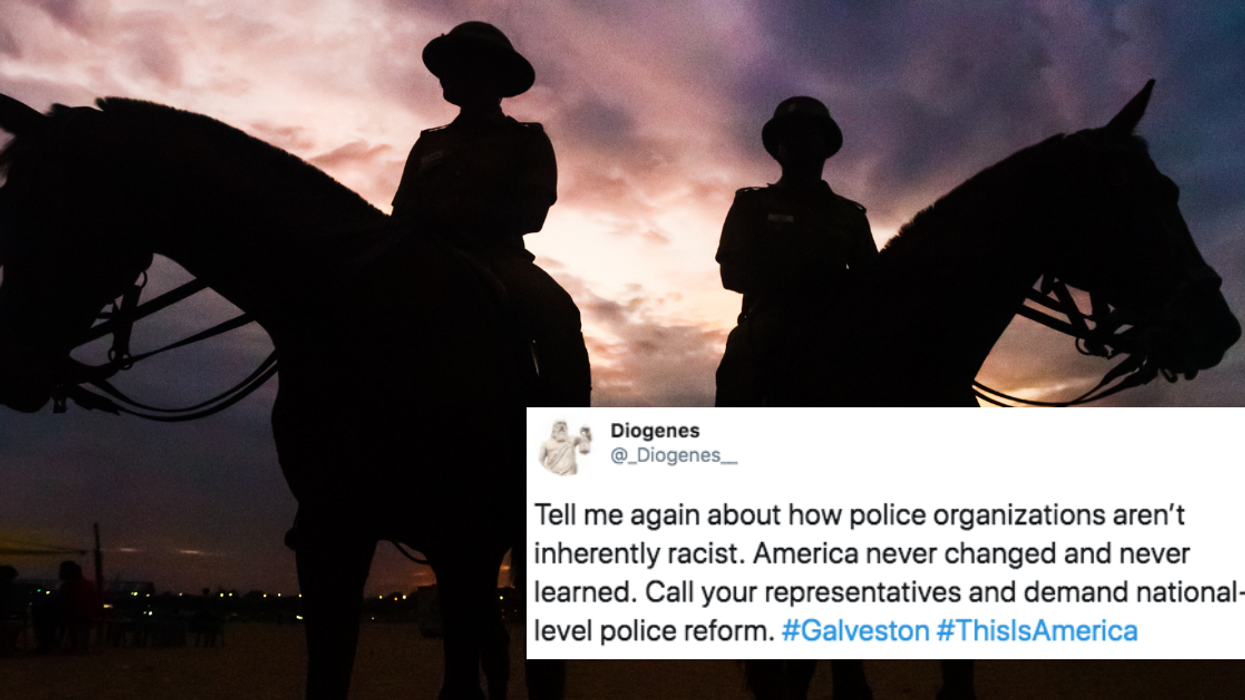

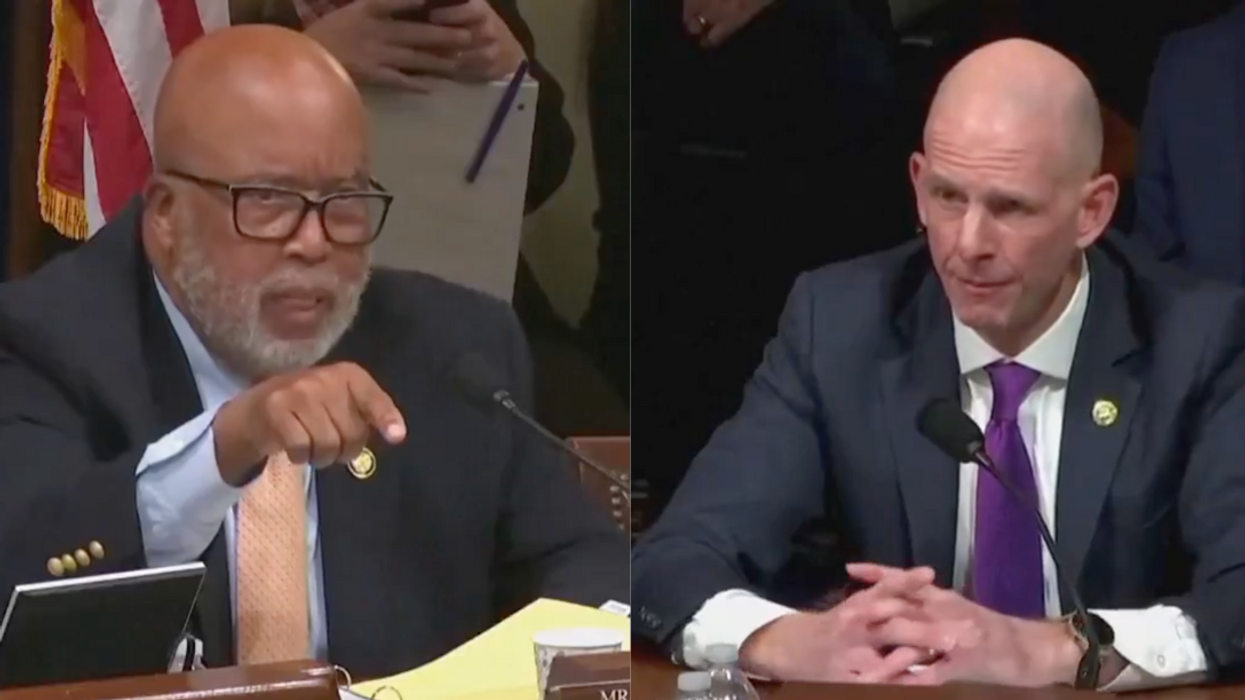








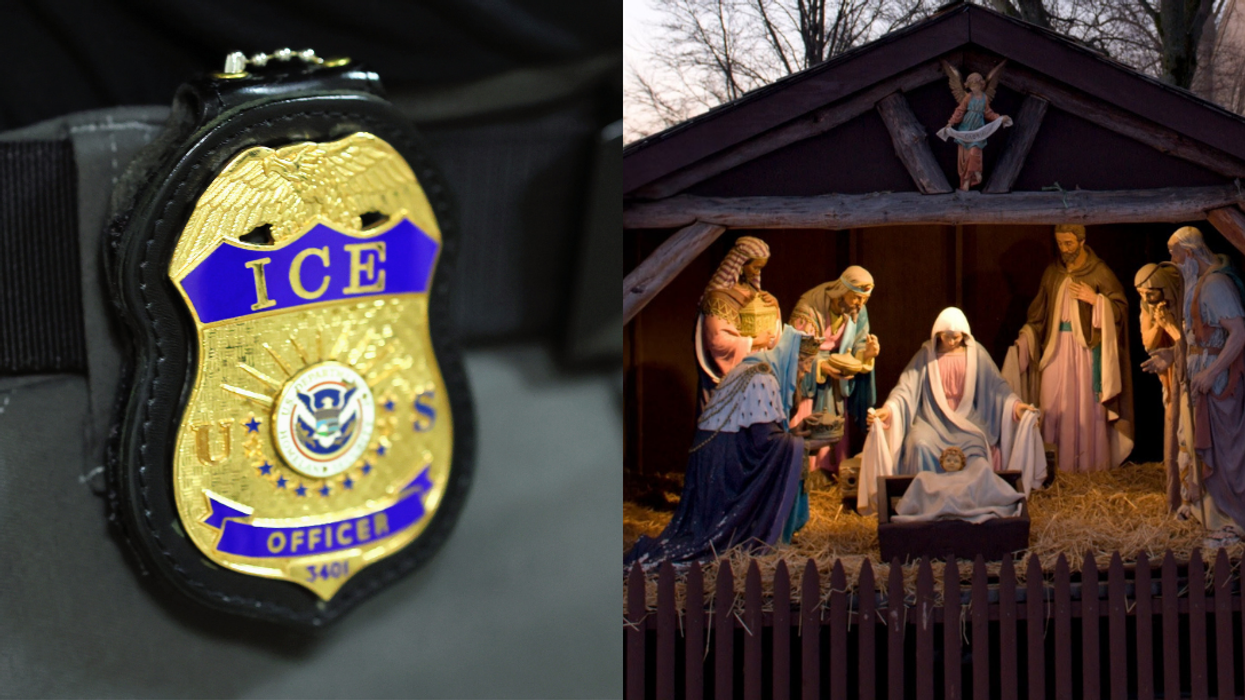

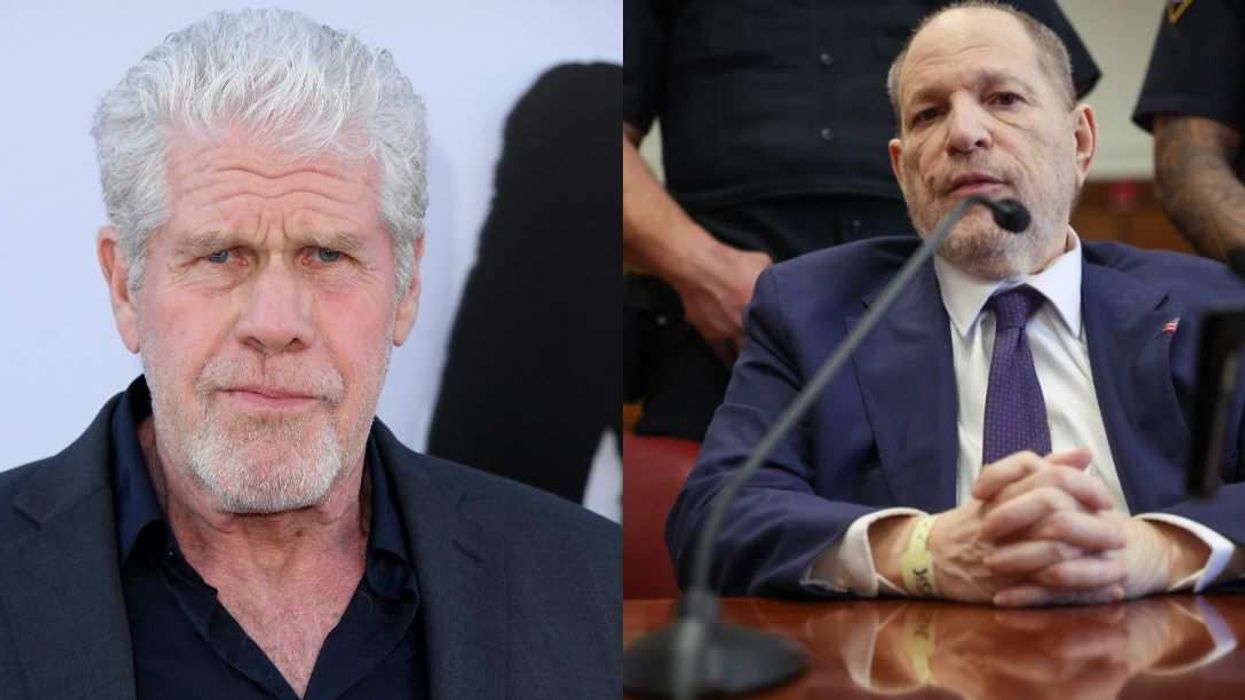
 u/mlg1981/Reddit
u/mlg1981/Reddit u/Miserable-Cap-5223/Reddit
u/Miserable-Cap-5223/Reddit u/riegspsych325/Reddit
u/riegspsych325/Reddit u/raysofdavies/Reddit
u/raysofdavies/Reddit u/NotAsBrightlyLit/Reddit
u/NotAsBrightlyLit/Reddit u/LvLtrstoVa/Reddit
u/LvLtrstoVa/Reddit u/mysocalledmayhem/Reddit
u/mysocalledmayhem/Reddit
 @unpunishablewoman/TikTok
@unpunishablewoman/TikTok @unpunishablewoman/TikTok
@unpunishablewoman/TikTok @unpunishablewoman/TikTok
@unpunishablewoman/TikTok @unpunishablewoman/TikTok
@unpunishablewoman/TikTok @unpunishablewoman/TikTok
@unpunishablewoman/TikTok @unpunishablewoman/TikTok
@unpunishablewoman/TikTok @unpunishablewoman/TikTok
@unpunishablewoman/TikTok @unpunishablewoman/TikTok
@unpunishablewoman/TikTok @unpunishablewoman/TikTok
@unpunishablewoman/TikTok @unpunishablewoman/TikTok
@unpunishablewoman/TikTok
 @helsmcp/TikTok
@helsmcp/TikTok @helsmcp/TikTok
@helsmcp/TikTok @helsmcp/TikTok
@helsmcp/TikTok @helsmcp/TikTok
@helsmcp/TikTok @helsmcp/TikTok
@helsmcp/TikTok @helsmcp/TikTok
@helsmcp/TikTok @helsmcp/TikTok
@helsmcp/TikTok @helsmcp/TikTok
@helsmcp/TikTok @helsmcp/TikTok
@helsmcp/TikTok @helsmcp/TikTok
@helsmcp/TikTok